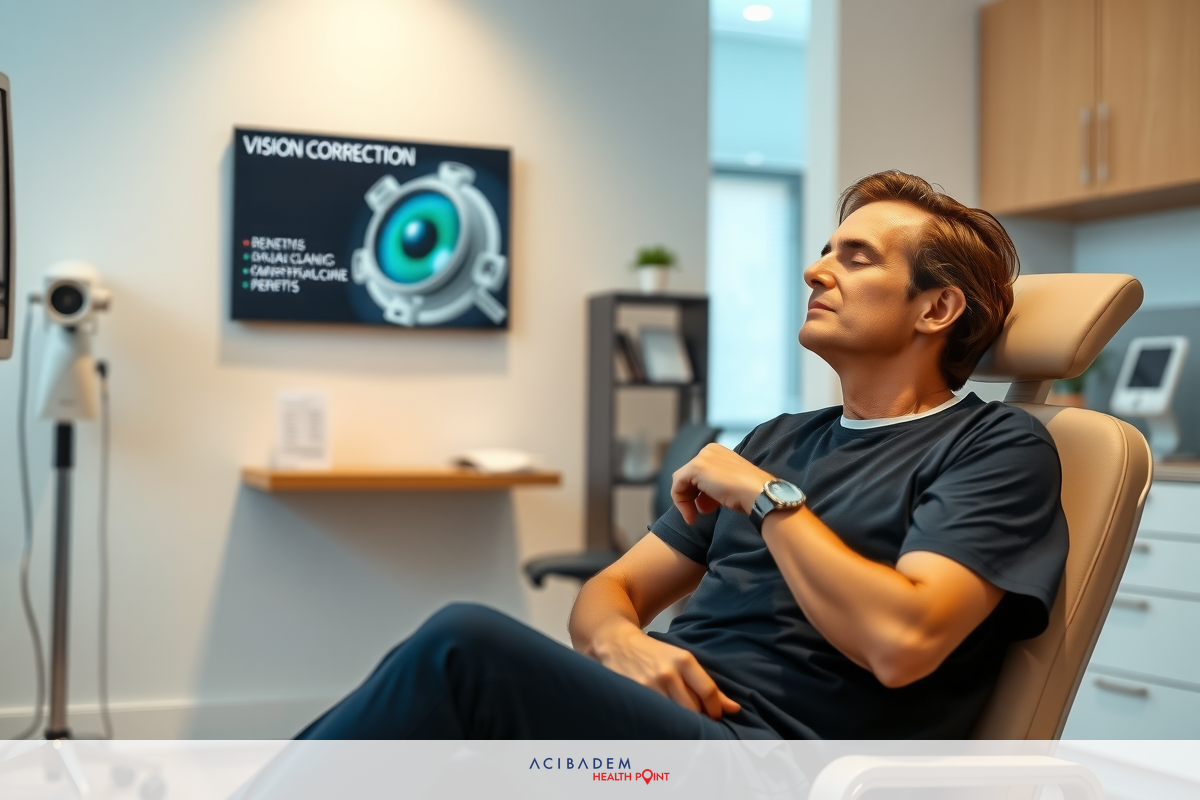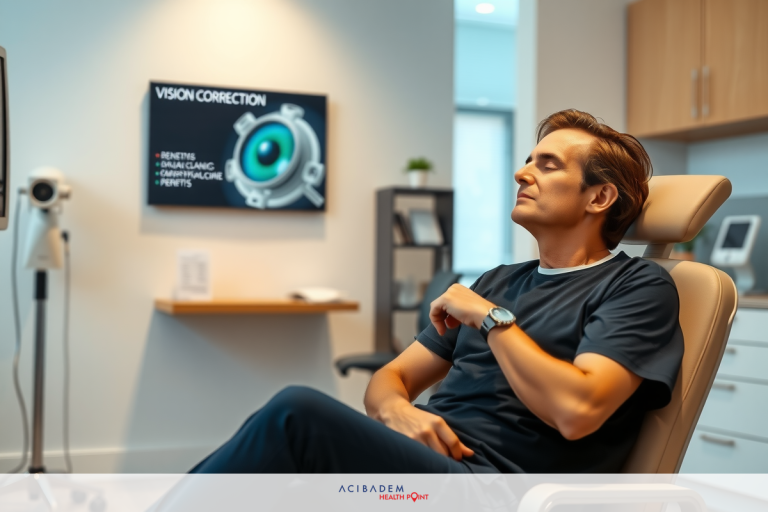When to Do Laser Eye Surgery
When to Do Laser Eye Surgery. Sitting atop the cutting edge of vision correction, laser eye surgery has transformed countless lives. Its efficacy and safety have been meticulously proven through rigorous trials and studies over the years. Yet, timing remains a critical aspect worthy of consideration before embarking on this journey towards enhanced optical clarity.
Substantial thought should go into understanding when one ought to undergo such an operation. This is not merely akin to picking a date off a calendar; rather it requires careful evaluation of multiple factors that can influence both the procedure’s outcome and recovery duration. The location for surgery, extent of visual impairment, age, overall health status, personal commitments – all these elements intertwine in influencing your ideal time for laser eye surgery.
What follows in subsequent sections is an assessment of benefits associated with this form of treatment alongside important considerations prior to scheduling your appointment. We shine light on what you can anticipate during recovery period post-surgery as well as long-term results.
Laser Eye Surgery
Laser eye surgery, a revolutionary stride in vision correction, has known to bestow its recipients with an array of benefits. The first and foremost being the dramatic improvement in eyesight, often leading to 20/20 vision or better. As impressive as it sounds, this isn’t merely a lofty promise but rather a tangible outcome witnessed by many post-procedure.
The elimination or significant reduction of dependence on glasses or contact lenses is another striking advantage that laser eye surgery offers. This newfound sense of freedom can be very empowering for those who’ve lived their lives enslaved to these optical aids. Moreover, opening one’s eyes every morning to clear sight without having to fumble around for glasses brings about convenience that cannot be underestimated.
Probing deeper into the timing aspect reveals that there isn’t an universally ideal time set in stone for undergoing laser eye surgery. Each individual’s circumstances dictate what would constitute as the ‘best time’ for them. Factors such as age play a role here – while some may opt for it at an early age due to high degrees of myopia, others might choose later life when their prescription stabilizes.
In choosing location too, careful evaluation becomes essential; not just geographical location but also selecting from where exactly you wish to get your treatment done – whether at renowned clinics with experienced surgeons or somewhere closer home depends upon personal priorities and resources available.
Lastly yet importantly comes the cost factor which although initially seems higher compared to maintaining regular spectacles or contacts over years turns out more economical eventually given the longevity and permanence laser eye surgeries provide.
With all these benefits up its alley along with flexibility regarding timing and location selection based on individual needs makes laser eye surgery indeed a compelling option worth considering by anyone seeking improved eyesight.
Factors to Consider
When considering laser eye surgery, it’s not enough to solely focus on the benefits. It is vital to consider a myriad of factors that could influence your decision – from timing and location selection to personal circumstances like health status and commitments. This section offers valuable insights into these crucial aspects you must ponder over before scheduling your procedure.

A key consideration in this journey towards improved vision through laser eye surgery is timing. The ideal time for one person may not be the same for another as it depends on numerous factors such as age, degree of visual impairment, work or academic commitments, and even seasonal preferences (some prefer recuperating during winter while others might opt for summer). Understanding what works best for you can pave the way towards a smooth surgical experience followed by an efficient recovery.
Location selection too plays a critical role here. It’s important not just in terms of geographical convenience but also with regards to choosing a reputable clinic equipped with state-of-the-art technology and experienced surgeons who specialize in this field.
While most patients are good candidates for laser eye surgery, individual health conditions need thorough evaluation prior opting for the procedure. Those with certain medical histories or ongoing conditions affecting their eyes might need additional consultations or alternative treatments.
Moreover, psychological preparedness cannot be overlooked either; feeling mentally ready can contribute significantly towards successful outcomes post-surgery.
Finally yet importantly comes financial planning – although insurance companies do provide coverage under specific criteria which varies across providers; it is advisable to consult them well ahead of time so necessary preparations could be made if needed.
By giving due thoughtfulness to each of these considerations alongside consulting experts in this field would ensure that when you finally decide upon undergoing laser eye surgery – it happens at the right time, at right place and under optimal circumstances – all leading up towards achieving desired results smoothly.
Recovery and Results
Post-operative recovery from laser eye surgery is an integral part of the entire process and understanding what to expect can be immensely helpful in planning your journey towards improved vision. Initially, experiencing some discomfort or even mild pain isn’t uncommon but that usually subsides over a few days. Temporary visual disturbances such as glare, halos around bright lights, difficulty with night vision might occur too; yet these tend to diminish within weeks or months.
Certain do’s and don’ts must be adhered to meticulously during the recovery period for optimal healing. For instance – avoiding rubbing eyes, using prescribed eye drops diligently, refraining from strenuous activities or contact sports for a stipulated time post-surgery are all critical aspects of post-surgery care that aid in successful recovery.
Timing again plays a significant role here – if you have major commitments approaching soon after planned surgery date like an important work presentation or academic examination; it would be wise reconsidering your schedule as the initial few days following procedure could require rest and low visual strain.
Moving onto long-term results, most patients experience considerable vision improvement often eliminating need for glasses or contacts altogether. While presbyopia (age-related far sightedness) cannot be corrected through laser eye surgery and may still necessitate reading glasses beyond certain age; myopia (near sightedness), hypermetropia (far sightedness) along with astigmatism generally see remarkable correction leading to significantly enhanced vision quality.
However, individual outcomes can vary based on factors including degree of preoperative refractive error among others hence maintaining realistic expectations becomes crucial.
In terms of location selection for follow-up visits post-surgery – convenience definitely matters since regular check-ups initially are required which gradually taper off over time once healing progresses satisfactorily.
It’s safe to say while laser eye surgery offers great promise towards achieving improved eyesight, understanding what to expect during recovery phase and long-term results beforehand can help greatly in making an informed decision. This combined with careful timing and location selection based on personal needs would ensure your journey towards better vision through laser eye surgery is a smooth one.
Frequently Asked Questions
What is laser eye surgery?
Laser eye surgery refers to procedures that use laser technology for vision correction. It's often used to treat conditions like myopia (nearsightedness), hypermetropia (farsightedness), and astigmatism.
How long does the recovery period last after laser eye surgery?
The initial healing process usually takes a few weeks, but it can take several months for your vision to fully stabilize. During this time, it's crucial to follow all post-operative care instructions provided by your surgeon.
When is the best time to have laser eye surgery?
How should I choose the location for my procedure?
Location selection involves considering both geographical convenience and quality of care offered at potential clinics. Reputable places equipped with advanced technology and experienced surgeons are worth considering even if they're not in immediate proximity.
Please note that these answers are intended purely for informational purposes and do not constitute medical advice. Always consult with a healthcare professional for accurate information.








